
Healing the Wounds of Enmeshment:
A Practical Guide for Teens and Parents
For teens struggling with family enmeshment, the traditional therapy model may not be enough. Learn how wilderness therapy can provide a powerful and transformative experience to help your teen achieve greater independence and healing.
Break free from family enmeshment and empower your teen to thrive. Take our assessment to see if wilderness therapy is the right choice for your family.
The teenage years are a critical stage of development, and enmeshment can have a lasting impact on teens and their future. Whether it's with family, friends, or a significant other, enmeshment can hinder a teen's ability to develop their unique identity and cultivate vital interpersonal skills. In this article, we'll explore the signs, types, and causes of enmeshment, as well as effective treatment options to help your teen overcome these challenges.
What is Teen Enmeshment?
The APA defines enmeshment as, "a condition in which two or more people, typically family members, are involved in each other’s activities and personal relationships to an excessive degree, thus limiting or precluding healthy interaction and compromising individual autonomy and identity.”
When boundaries become blurred or absent in enmeshed relationships, teens may struggle to assert their own identity and become excessively dependent on the other person. This can result in feelings of fusion and an overwhelming sense of responsibility for the other person's happiness.
Types of Enmeshment in Teenage Relationships
Enmeshment in teenage relationships can take several different forms, including:
- Family enmeshment: This occurs when family members become overly involved in each other's lives, often blurring the boundaries between them. The family members may feel a sense of fusion with each other, which can lead to difficulty asserting their own identity. Family enmeshment can include:
- Parental enmeshment: This occurs when a parent becomes overly involved in their child's life, often blurring the boundaries between parent and child. The child may feel responsible for the parent's well-being and become excessively reliant on them.
- Sibling enmeshment: This occurs when siblings become overly reliant on each other, blurring the boundaries between them. The siblings may feel a sense of fusion with each other, which can lead to difficulty asserting their own identity.
- Peer enmeshment: This occurs when a teen becomes overly reliant on a friend or group of friends, often to the point of losing their own identity. The teen may feel responsible for the friend's well-being and become excessively dependent on them.
- Romantic enmeshment: This occurs when a teen becomes overly dependent on their romantic partner, blurring the boundaries between them. The teen may feel responsible for their partner's well-being and become excessively reliant on them.
- Emotional enmeshment: Emotional enmeshment occurs when family members are overly involved in each other's emotions and rely on each other for emotional validation and support. This can lead to a lack of autonomy and difficulty forming healthy boundaries.
- Intellectual enmeshment: Intellectual enmeshment occurs when family members share the same beliefs, values, and opinions, and discourage or shame individuals who hold different views. This can lead to a lack of critical thinking skills and an inability to form independent beliefs and opinions.
- Role enmeshment: Role enmeshment occurs when family members are expected to fulfill certain roles or functions within the family, and may feel pressure to conform to these roles even if they are not in line with their individual identity.
- Physical enmeshment: Physical enmeshment occurs when there is a lack of physical boundaries, such as sharing a bed or bathroom, or a lack of privacy.
Enmeshment can occur in any type of relationship, and it can have a lasting impact on a teen's future ability to form healthy relationships. Identifying the type of enmeshment present in a teen's life is an important step in addressing and overcoming the challenges associated with it.
Signs of Enmeshment In Teens
Enmeshment in teenagers can be difficult to recognize, but here are some common signs to look out for:
- Lack of personal boundaries: The teenager may have trouble setting and maintaining personal boundaries with their parents, and may feel like their parents are overly involved in their life.
- Difficulty making decisions independently: The teenager may struggle to make decisions without seeking approval from their parents, and may feel lost without their input.
- Fear of abandonment: The teenager may have a fear of losing the relationship with their parents, and may feel overly attached to them.
- Lack of self-identity: The teenager may feel defined by the relationship with their parents, and may have a weak sense of self outside of the relationship.
- Difficulty forming relationships outside the family: The teenager may struggle to form healthy relationships with others, and may feel more comfortable relying on the relationship with their parents.
- Insecurity and low self-esteem: The teenager may struggle with feelings of insecurity and low self-esteem, and may constantly seek approval and validation from their parents.
- Over-reliance on parents for emotional support: The teenager may turn to their parents for emotional comfort and support, and may feel uncomfortable expressing their feelings or needs to others.
- Dependence on parents for daily tasks: The teenager may be unable to complete daily tasks without the help of their parents, and may feel overwhelmed or helpless without their support.
Breaking free from family enmeshment can be challenging, but it is important for the emotional and psychological growth of each individual family member. Therapy and counseling can be helpful in this process, as well as developing healthy communication skills within the family and fostering independence.
What Causes Enmeshment in Teens?
Discovering the source of teenage enmeshment can be a challenging journey, but one that ultimately leads to greater understanding and the ability to help. Enmeshment in teenagers can have various causes, including:
- Overprotective parents: When parents are overprotective and don't allow their teenager to explore their independence and make their own decisions, it can lead to a sense of enmeshment. Some types of overprotective parenting include helicopter parenting, lawnmower parenting, and Bulldozing parenting.
- Emotional dependence: When a teenager is emotionally dependent on their parent, they may feel like they can't function or make decisions without their parent's input, leading to enmeshment.
- Family dysfunction: Family dysfunction, such as abuse or neglect, can create a sense of enmeshment as a way to cope with instability and chaos.
- Lack of healthy boundaries: When there are no clear boundaries in a family or relationship, it can lead to enmeshment and a lack of individual identity.
- Cultural or religious beliefs: Certain cultures or religions may prioritize the family unit over individual identity, which can contribute to enmeshment.
It's important for teenagers to develop a sense of independence and autonomy, while still maintaining healthy relationships with their family and loved ones. This can involve setting clear boundaries, learning to communicate effectively, and seeking outside support if necessary.
“[Healthy relationships] absolutely requires that each person in a relationship be whole and individual… Enmeshment — two people blending in such a way that one or both lose their identity — is not [healthy] either.”
Effects of Untreated Enmeshment on Teens
Enmeshment can have a range of effects on teenagers, including:
- Loss of personal identity: When a teen is enmeshed with another person, they may struggle to establish their own unique identity. This can lead to difficulty asserting their own opinions, beliefs, and desires, and can make it difficult for them to form healthy relationships in the future.
- Low self-esteem: Enmeshment can cause a teen to doubt their own abilities and value, as their sense of self-worth becomes intertwined with the other person's well-being.
- Difficulty setting and maintaining personal boundaries: Enmeshment can make it difficult for a teen to establish healthy boundaries with others. They may struggle to say no, may have difficulty distinguishing their own needs from the needs of others, and may feel responsible for the other person's happiness.
- Difficulty with emotional regulation: Enmeshment can cause a teen to become overly focused on the other person's emotions, which can make it difficult for them to regulate their own emotions. They may also struggle with anxiety or depression as a result of feeling responsible for the other person's well-being.
- Lack of autonomy: Enmeshment can make it difficult for a teen to develop a sense of independence and autonomy. They may feel like they are unable to make decisions for themselves, and may become overly reliant on the other person for support and guidance.
- Inability to form healthy relationships: Enmeshment can make it difficult for a teen to form healthy relationships in the future. They may struggle to establish healthy boundaries, may be more likely to become involved in codependent relationships, and may have difficulty trusting others.
- Increased risk of mental health problems: Enmeshment can increase a teen's risk of developing mental health problems, such as anxiety, depression, or substance abuse.
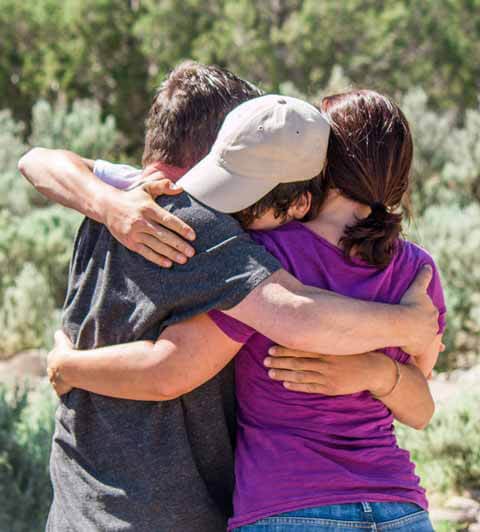
You Are Not Alone
RedCliff Ascent is there for you and your family.
How Can Parents Help Enmeshed Teens?
Here are some ways parents can help a teen struggling with enmeshment:
- Encourage your teen to develop their own interests and hobbies: Help your teen find and pursue activities that they enjoy, and support them in developing their own passions and interests outside of the enmeshed relationship.
- Promote healthy communication: Encourage open and honest communication with your teen, and create a safe space for them to express their thoughts and feelings without fear of judgment or criticism.
- Set and maintain healthy boundaries: Work with your teen to establish clear boundaries in the enmeshed relationship, and encourage them to set boundaries with other people in their lives as well.
- Practice self-care: Taking care of your own physical and mental health is important as a parent. By prioritizing self-care, you can better support your teen as they navigate the challenges of enmeshment.
- Seek professional help: Consider working with a therapist or counselor who has experience working with enmeshment in families. They can help your teen develop coping strategies and identify ways to break free from the enmeshed relationship.
By implementing these strategies, parents can take an active role in helping their enmeshed teen break free from unhealthy relationships and start on a path toward greater independence and personal growth. However, it's important to recognize that for some teens, additional support may be necessary. In the following section, we'll discuss the importance of early intervention and treatment for teen enmeshment.
Importance of Early Intervention & Treatment for Teen Enmeshment
Early intervention is crucial in addressing enmeshment issues in teens for several reasons:
- Addressing enmeshment early on can prevent it from becoming a chronic problem and escalating into more severe and potentially harmful behavior.
- Teens are still developing and their brains are more malleable, making it easier for them to learn vital interpersonal skills. It is harder for adults with more established patterns to learn new social skills.
- Addressing enmeshment early on can help build a foundation of healthy coping skills and emotional regulation that can serve them well throughout their lives.
- Early intervention can also help prevent the development of comorbid conditions, such as depression and anxiety, that can arise as a result of untreated enmeshment.
- By addressing enmeshment early on, parents can help their teens learn to manage their emotions in a healthy way, build positive relationships, and set the stage for a successful future.
Early Intervention Is Important For Healing Your Teen & Family
Early intervention and treatment can help parents and families of teens struggling with enmeshment in several ways:
- Provides education and support: Mental health professionals can help parents and families understand enmeshment and its effects on their teen's emotional and mental health. They can also provide guidance on effective communication strategies, setting boundaries, and developing healthy relationships.
- Offers a safe space for communication: Family therapy sessions can provide a safe space for parents and their teen to communicate their thoughts and feelings without judgment. A therapist can help facilitate constructive discussions that lead to more positive outcomes for everyone involved.
- Improves relationships: Early intervention can help improve relationships between parents, teenagers, and other family members. This can include teaching parents how to better understand and communicate with their teen while also improving the teenager's relationships with their peers and family members.
- Prevents further harm: Early intervention can help prevent further harm to the teenager and the family. This can include addressing behavioral issues before they escalate and helping the teenager access the resources and support they need to overcome challenges.
- Identifies underlying issues: A mental health professional can help identify any underlying issues that may be contributing to the enmeshment. These issues may include past traumas or unresolved family dynamics that need to be addressed to promote healing and healthy relationships.
- Promotes independence and autonomy: Early intervention and treatment can help parents and families encourage their teen's independence and autonomy. By developing strategies for healthy separation, parents can help their teen develop their own identity, make their own choices, and build healthy relationships outside of the family.
- Reduces stress for the whole family: Early intervention can help reduce stress and anxiety for parents and other family members, as well as for the teenager themselves. By receiving support and guidance, families can feel more confident and better equipped to manage the situation effectively.
By taking the steps necessary for early intervention, parents can not only help their enmeshed teen heal and grow but also promote healthier relationships within the family as a whole. In the following section, we'll explore some of the effective treatment options available for enmeshed teens.
Healing from Enmeshment: What Are Your Options?
As a parent, it's important to know the different treatment options available to help your teen overcome enmeshment. Some of the options include:
- Outpatient therapy: This type of therapy is a more traditional approach and can be conducted in a clinical setting. Your teen will meet with a therapist on a regular basis and work through their enmeshment in a controlled environment.
- Community-based programs: Community-based programs offer support and guidance to teens in a non-clinical environment. They may involve classes, group therapy sessions, recreational activities, and skill-building workshops.
- Residential treatment: Residential treatment programs offer a more intensive level of care for teens who need round-the-clock support and structure. These programs can provide a safe and secure environment for your teen to work through their enmeshment and other behavioral issues.
- Wilderness therapy: Wilderness therapy programs use the great outdoors to help teens work through their enmeshment and other emotional issues. These programs involve outdoor activities, group therapy sessions, and individual counseling to help teens develop new coping skills and healthier ways of dealing with their emotions.
Ultimately, the best option for your teen will depend on their individual needs and the severity of their enmeshment issues. It's important to work with a mental health professional to determine the best course of action.
What is Wilderness Therapy?
Wilderness therapy is a type of treatment program for enmeshed teens that uses nature, wilderness activities, and therapy as a means to address and heal unhealthy relationships. Wilderness therapy takes full advantage of the outdoors and its ability to foster change. The outdoors provide teens with a contrasting environment to observe aspects of themselves that are often overlooked in traditional talk therapy.
As the leader in wilderness therapy, RedCliff Ascent is an effective treatment program for struggling teens aged 13-17. RedCliff Ascent’s safe, nurturing, and supportive environment provides teens with the skills they need to cope in a healthy and age-appropriate way.
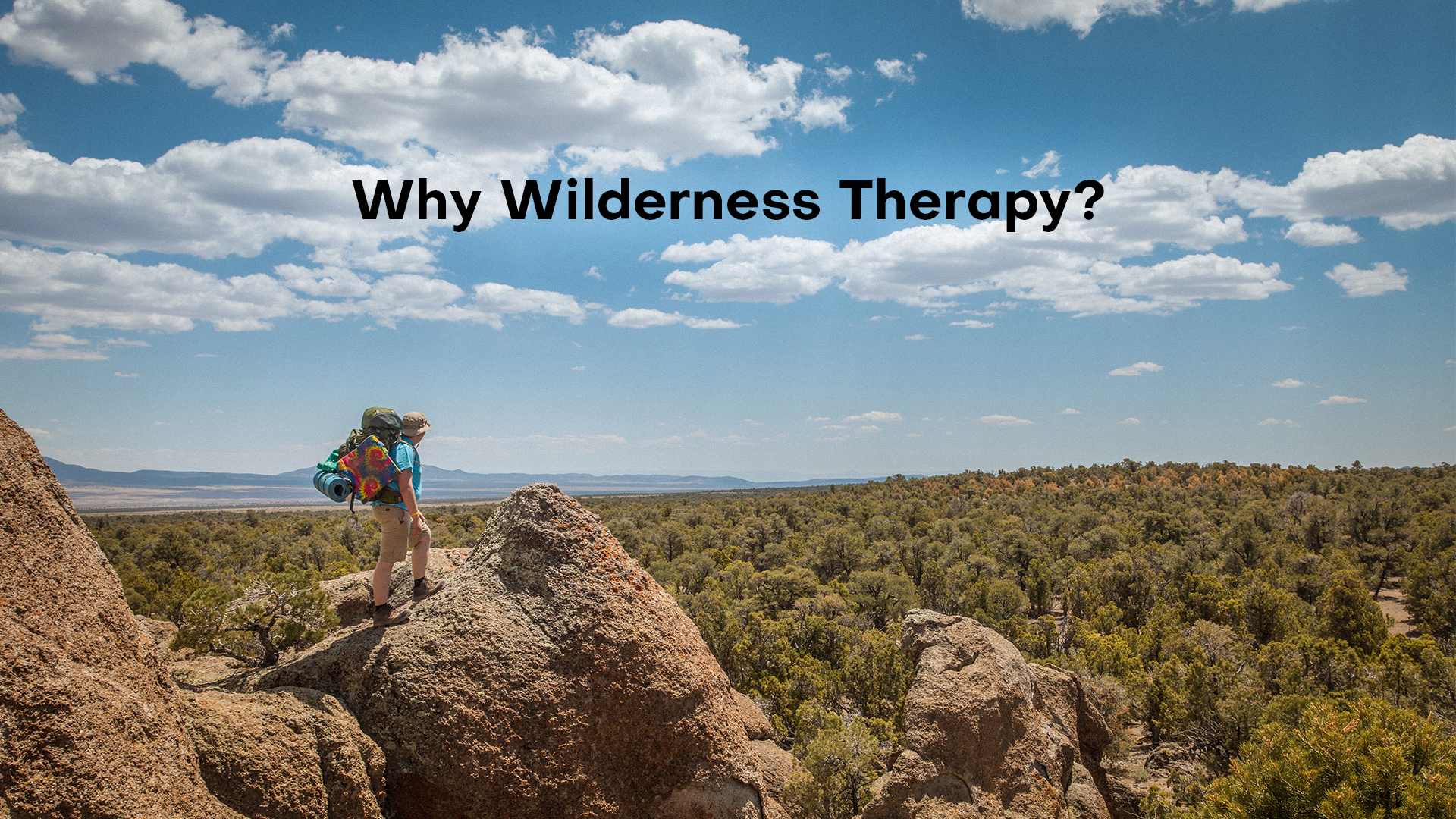
Benefits of Wilderness Therapy for Enmeshed Teens & Families
Being immersed in nature can have a profound impact on a teenager. It improves their mental, emotional and physical health. When combined with a trusted clinical approach, a therapeutic wilderness experience helps heal enmeshed teens and their families. Here are five specific benefits your family can expect to see while your teen is in wilderness therapy.
Enmeshment is often a symptom of deeper mental health struggles rather than the cause of them. Wilderness therapy's constant observation, coupled with mental health assessments, can help identify the root of their teen's enmeshment issues, shortening the number of days in treatment by 20%.
Wilderness therapy provides a novel and challenging environment that disrupts the unhealthy patterns that cause your teen's enmeshment or are a result of your teen's enmeshment.
Teens living with enmeshment issues often struggle to engage in ongoing treatment and have very high dropout rates. Poor engagement may lead to worse clinical outcomes, with symptom relapse and rehospitalization. Our research shows that even teens who have been resistant to therapy engage in the process while in wilderness therapy.
RedCliff Ascent’s safe, nurturing, and supportive environment provides teens with the social and emotional learning skills they need to re-engage in healthy development.
If you're like most parents, you don't want to just get rid of your teen's enmeshment issues. You want them to eventually become thriving, independent adults equipped with the skills necessary to succeed outside your home. These include:
Resilience - the ability to successfully adapt to challenging situations despite risk and adversity. Resilience helps us develop social competence, problem-solving skills, critical consciousness, autonomy, and a sense of purpose.
Leadership & Social Competence skills include qualities such as:
- responsiveness, especially the ability to elicit positive responses from others
- flexibility
- empathy
- communication skills
- and a sense of humor
Problem-solving skills - the ability to plan; to be resourceful in seeking help from others; and to think critically, creatively, and reflectively.
Autonomy is having a sense of one’s own identity and an ability to act independently and to exert some control over one’s environment, including a sense of task mastery, internal locus of control, and self-efficacy. The development of resistance (refusing to accept negative messages about oneself) and of detachment (distancing oneself from dysfunction) serves as a powerful protector of autonomy.
Sense of Purpose and a belief in a bright future, including goal direction, educational aspirations, achievement motivation, persistence, hopefulness, optimism, and spiritual connectedness.
98% of students report feeling connected to RedCliff's staff and one or more of their peers.
Upon completion of the program, 86% of parents reported improvement in their child's problems when compared to when they entered
12 months after treatment 86% of parents reported that their child's problems are improved since they completed treatment
How Does Wilderness Therapy Work?
RedCliff Ascent has helped enmeshed teenagers for almost 30 years and has conducted research since its inception. Through our research, we have identified seven principles that actually make a difference in helping your whole family recover from your teen's enmeshment issues.
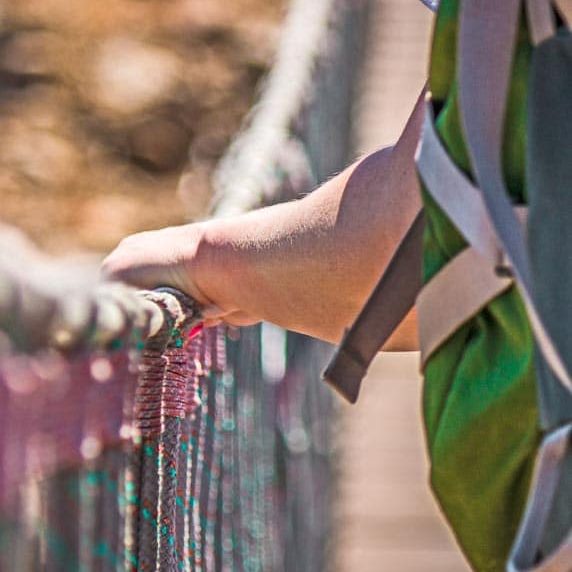
Healthy relationships are not only the foundation for growth and development but the launchpad for a successful future as well.
Your teen will live in a small group where social influence and feedback can be given and received in a safe and supportive way. This safe environment teaches your teen to build healthy relationships with both their peers and mentors. Having the skills to make and keep healthy relationships is essential to overcoming enmeshment.
Treatment for enmeshment in teens is most effective when it is responsive to your teen’s specific struggles, strengths, personality, sociocultural context, and preferences. Our evidence-based treatment approach combines decades of research and clinical expertise to personalize a treatment plan that fits your teen’s unique struggles, characteristics, culture, and preferences.
One common theme in feedback from RedCliff Ascent’s students is that the challenging and novel environment provided them with a new perspective on their life and everything they knew before wilderness therapy.
Novel physical environments are a place of contrast that confront the world views your teen takes for granted. This helps your teen to see with a fresh perspective and see new options available to them. Growth occurs outside of the comfort zone and is accelerated in environments that push physical and mental limits.
Your teen's enmeshment issues didn't develop in isolation, it affects everyone in your family. The healing process should apply to your whole family as well. Parental involvement and family support during treatment greatly increase your teen’s progress in treatment and will help them to adapt after treatment.
Communicating through handwritten letters provides a novel and powerful way to work through your family's struggles. You will also have access to our parent resource library, a weekly support call with other parents like you, as well as a weekly session with your child's therapist.
Your teen's enmeshment issues fill every aspect of their life. The best treatment programs must heal every part of their life as well. They use a holistic and integrated approach so that every aspect of your teen's life can heal from enmeshment. In our treatment program, mentors, therapists, doctors, nurses, academic directors, nutritionists, and everyone on your teen's treatment team will meet together each week to discuss how to best help your child.
Exclusionary criteria for RedCliff Ascent include:
- Teens younger than 13 and older than 17.5
- Teens with a physical limitation, i.e. wheelchair, crutches, etc.
- Teens with conditions that need intensive medical care or monitoring, i.e. eating disorders, diabetes, etc.
- Teens with a history of violence or sexual assault
- Teens with psychosis or schizophrenia
RedCliff Ascent does not take Medicare or Medicaid.
What Our Clients Say About RedCliff Ascent
I’d like to let you know how delighted I am with the RedCliff program and how impressive the hard work and dedication of the staff is...We feel that your program has very probably saved this child’s life and given us back our son.
- Kathy
We are very pleased with [our daughter's] self-improvements. A year ago we would not have dreamed all this to be possible! The path she head down was self-destruction. The impact of the RedCliff program is what turned [her] around. Our headstrong daughter was able to take stock of her past behavior, deal with her anger towards us, and begin to move in a more positive direction.
Even though sending her to RedCliff was a gut-wrenching decision, we know we did the right thing. We are thankful for the help and insight you gave to her and us.
- Clark and Irene
Since [our son] went to RedCliff we have all been transformed, but none as much as he. All of his teachers had nothing but good things to say about him. There have been no behavior issues at school this year. As a matter of fact, his teachers stated that they would like it if they had more students like Rob in their classes. I cried again at this meeting, but this time they were tears of joy.
- Julie

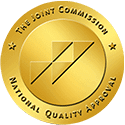
Backed by The Joint Commission which ensures programs adhere to the highest quality of clinical and medical practices.
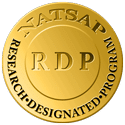
Designated as a NATSAP Research Program, showing our commitment to well-researched practices in our program.

We are also OBH Accredited through the Association of Experiential Education (AEE) which regulates wilderness therapy practices.

Full member of the National Association of Therapeutic Schools and Programs (NATSAP), which ensure regulation of programs that serve children and adolescents.

RedCliff Ascent is fully licensed in the state of Utah.

Backed by the Association of Experiential Education (AEE) that ensures programs maintain appropriate professional behavior and risk management.

Founding member of the OBH Council (Outdoor Behavioral Healthcare Council).

Founding member of Choose Mental Health, guiding families with questions about mental health.
Every teen’s strengths and challenges are different. Complete the no-obligation teen assessment below to help us understand your family’s needs.
We respect your privacy and will never share your information.
We’re here to help - take the first step and contact us to see if wilderness therapy could be the path to healing for your family.
